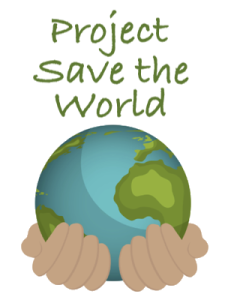Events
Date(s) - 19/05/2021
9:00 am - 10:30 am
Categories No Categories
Link:
https://www.eventbrite.ca/e/culture-things-and-empire-series-one-agriculture-tickets-129661632433?
Description:
Our first series contains six seminars, each one based on a particular theme, which will take place every month consecutively between December 2020 and May 2021. Each speaker will present their 10 minute paper followed by a response to both papers by their respondents. Group discussion, questions and comments will take place in the time remaining. We look forward to welcoming you to the CTE Seminars!
PLEASE NOTE: this seminar takes places at an earlier time.
Malarvizhi Jayanth (University of Chicago)
How the British Imperial Trade in Rice Transformed Rural Southern India
Abstract: The history of rice becoming the dominant food grain in southern colonial India is little known, although India is among the largest exporters of rice today. Indian participation in the international trade in rice can be traced back to the colonial period, when the rice trade linked various parts of the British Empire and drew within its ambit rice cultivation in southern India as well. Sources from the period present two contrasting views of the cereal in southern India: one, that it was associated with elite status, though it was increasingly becoming more commonly consumed, and, two, that it was marked as quintessentially South Indian in comparison to wheat which was associated with northern India. The rapid growth of the international rice trade accompanies rice becoming the dominant cereal in the South Indian region. Rice was achieving dominance, paradoxically, at a time when agrarian slavery, a form of labour extraction primarily used in rice cultivation, was being abolished piecemeal. Other technologies to increase the yield of rice were put into place to increase government revenue and provide export quality product. The technology of irrigation, for instance, was used to expand the more profitable and high-yielding wet cultivation of rice over dry methods in nineteenth-century rural southern India. There is also record of the British administration offering incentives to ‘develop’ land to make it suitable for wet cultivation of rice, thereby increasing yield and land revenue. This history is only alluded to briefly in famine reports, discussions of prisoner rations, and reports on land revenue and trade. This paper will draw together these disparate sources to illuminate the social and environmental transformations effected by the spread of a labour and water-intensive crop that fed an imperial consumer base.
Biography: Malarvizhi Jayanth holds a PhD in South Asian Studies from the University of Chicago. Her research and teaching interests include slavery, caste, agriculture, and social movements in southern colonial India. Having completed a study of the abolition of agrarian slavery in southern colonial India for her dissertation, she is now continuing research in two related areas of interest. The first relates to the social history of rice – the cereal most commonly produced by agrarian slavery – in southern colonial India. The second traces the social movements that followed the abolition of slavery and that gave weight to the ideal of human equality.
Matt Plishka (University of Pittsburgh)
Battling Banana Blight: A Multispecies Political Ecology of Panama Disease in Jamaica, 1911-1962
Abstract: My paper will provide an overview of my work-in-progress dissertation, tentatively titled Battling Banana Blight: A Multispecies Political Ecology of Panama Disease in Jamaica, 1911-1962. My dissertation explores Jamaican banana growers’ struggles with Panama Disease, a fungus that infects and kills any banana plant it comes into contact with. Jamaican smallholders were at the forefront of this crisis, as they cultivated a sizable portion of the bananas exported and relied on the banana trade for much of their income. These small-scale agricultural workers grappled with the disease for decades, trying different strategies and engaging with local and circum-Caribbean politics before eventually having to turn their lands over to sugar cultivation. In my study, I argue that mobility, migration, labor regimes, and infrastructures, both engineered and natural, played key roles in the spread of and failure to contain Panama Disease in Jamaica. Many of the conditions that contributed to this failure were the result of Jamaica’s status as a colony of the British Empire. Additionally, I argue that the efforts of smallholders to chart their own course in response to the pandemic and the attempts of the planter class to control and/or co-opt those efforts largely defined this period of Jamaica’s history. In keeping with the seminar themes of culture/things, and materiality, the paper will highlight my multispecies political ecology approach, which reconceptualizes other-than-humans from “objects” into “things.” I utilize this approach to analyze the human-plant-microbe assemblage that shaped the trajectory of the Jamaican banana industry. I explore how the pathogen behind Panama Disease and banana and sugar plants entered the political fold in Jamaica. While each not political actors on their own, each in relation to the other and to Jamaican growers and officials helped shape the political, social, and environmental course of the island and its people.
Biography: Matthew Plishka is a PhD Candidate in the Department of History at the University of Pittsburgh. His research focuses on the Jamaican banana industry in the early to mid twentieth century. In particular, he analyzes the spread of Panama Disease on the island and the ways that smallholders, planters, and colonial officials responded to the disease and interacted with one another as a result of it. He received his Master of Arts from the University of Chicago and his Bachelor of Arts from Lafayette College.
Powered by Events Manager
